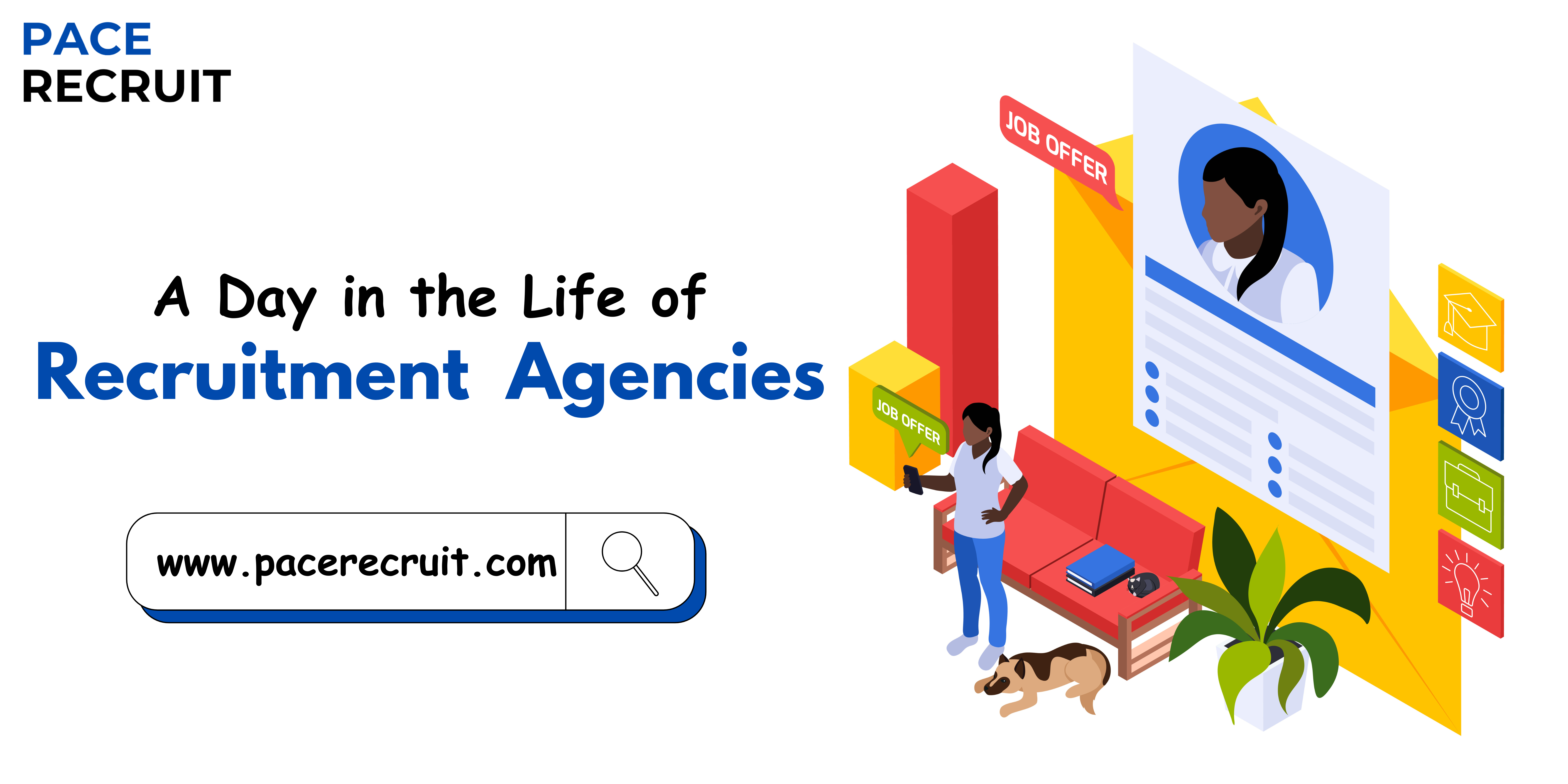The Life of Recruitment Agencies cannot have monotonous days as recruitment is full of incessant rushes of challenges and opportunities every day. Normally, the day in the life of a recruitment agency is dynamic in the sense that it is full of numerous forms of tasks and interactions responsible for linking job seekers with employers. Let’s see some of the salient points defining the day in the life of a recruitment agency.
Table of Contents
Client consultations and job intake meetings:
Most mornings begin with client consultations and job intake meetings. The recruiters meet with the hiring managers to learn what exactly the latter requires to hire, the type of culture they have, and what they specifically look for in a particular job. These set the basis for the recruitment process, thereby guiding recruiters on how to tailor their search to find the best candidate.
Sourcing and Screening of Candidates:
Once the requirements for the job are defined, recruitment begins. Sources of potential candidates will be searched through databases, job boards, and even social networking platforms. Candidates will be screened against qualifications, experience, and fit with the requirements of the role.
Interviews and Skill Assessments:
These interviews are done either face-to-face or video conferencing. The interviewers make sure that they are dealing with the best candidates who will get a fair interview. Thus, this will be able to assess their skills, experience, and their culture fit within the client company. Sometimes, skills assessment is also executed for knowing to what extent they are technical.
The short-listed candidates are presented to the client. The recruiter collects feedback from the clients and refines the search further so that the needs and expectations of the client are met and exceeded.
Negotiation and Placement:
Once a candidate is selected, it becomes the moment when the recruiter assists in negotiating an offer between the client and the candidate. The negotiation could be on salary, benefits, or any other condition of employment. Once the offer is accepted, the candidate is placed; that is, a successful placement for the recruitment agency.
Follow up and relationship building
Placement does not end the recruitment process. A recruiter will, therefore, follow up on clients and candidates to ensure that a smooth transition in onboarding is affected and long-lasting relationships are maintained. This is in terms of support during the transitioning period and addressing an issue that may come along.
Market Research and Industry Updates:
Recruiters track numerous market trends and industry news throughout the day. This keeps them abreast of the current job market, prospective hiring needs, and other valuable insights to the good benefit of clients and candidates.
Administrative Tasks and Documentation:
In administrative tasks, this may include updating of databases, preparation of reports, and keeping records on candidates among others. This helps ward off disorganization and lack of documentations in the recruitment processes.
Conclusion:
A recruitment agency differs in working days, ranging from client consultations to sourcing candidates, interviewing the prospects, negotiation of offers, and maintaining relationships. Each day is unique and rewarding in the recruitment world for recruiters because it bridges the gap between job seekers and employers.
Discover partnership opportunities with PACE Recruit, the premier recruitment agency in India. We are prepared to offer customized solutions to suit your recruitment requirements. Contact us at https://www.pacerecruit.com/contact-us/ to see how we may partner with you.
FAQs about The Life of Recruitment Agencies:
1. What does a typical day in a recruitment agency look like?
A typical day in a recruitment agency is therefore colorful, involving consultations with clients, sourcing candidates, interviewing them, negotiations for offers, and relationship building. Every day throws up new challenges as well as opportunities to match job seekers with the correct employers.
2. Why do recruitment agencies offer client consultations and job intake meetings?
The consultation meetings with the client and job intake sessions help in understanding the requirements of the employer regarding the hiring, company culture, and requirements of the job. This way, recruiters could center their search to find candidates who best fit the role
3. How do recruitment agencies find prospects?
Recruiters look for people through databases, job boards, and social media sites. They seek out people with particular skills needed by the jobs they are looking to fill.
4. What is the process of candidate screening?
Qualification, experience and suitability for the role are the criteria that are employed in screening candidates. Therefore, through such a screening process, the most qualified persons would be listed and subsequently invited to interview with the recruiting agencies.
5. What happens regarding interviews in recruitment agencies?
Interviews can be done face-to-face or via video conferencing. A recruiter can assess the candidates for their skills, experience, and culture fit with the client company. Assessments of technical skills may also be done.
6. What next after the interview process?
After the interviews, recruiters present the best candidates to the client. After that, the feedback from the client for refining the search and ensuring that the right match is made.
7. How does a recruitment firm facilitate an offer negotiation?
The recruiter facilitates the negotiation between the client and the candidate, once the parties agreed and the candidate is placed in the position, about salary, benefits, and any other condition of employment.
8. Will the recruiting agency follow up on the candidate who was placed?
That’s correct. Recruitment agencies call clients and prospects to sustain long-term contact and to provide a good transition process. They are with candidates throughout the moving process and address issues that may emanate from these movements.

